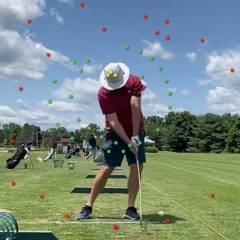IGNORED
Is Golf More Mental or Physical?
Note: This thread is 3030 days old. We appreciate that you found this thread instead of starting a new one, but if you plan to post here please make sure it's still relevant. If not, please start a new topic. Thank you!
Golf more mental or physical?
59 members have voted
-
Topics Being Discussed Right Now on The Sand Trap
-
- 3 replies
- 120 views
-
"5 Minutes Daily" Practice Challenge 1 2 3 4 1024
By iacas, in Instruction and Playing Tips
- 5 minutes daily
- dedication
- (and 6 more)
- 18,420 replies
- 1,891,880 views
-
- 6 replies
- 4,179 views
-
- 3 replies
- 898 views
-
- 11,187 replies
- 1,014,156 views
-






Recommended Posts